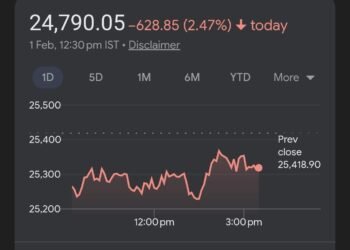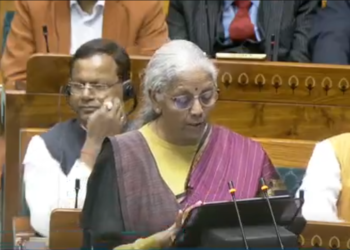Trump’s return to the UNGA podium reignited global debate as he slammed the UN and allies over Palestine, warning the move risks fueling conflict in Gaza.
BY PC Bureau
September 23, 2025 — In a fiery return to the United Nations General Assembly (UNGA), US President Donald Trump launched a blistering critique of the world body and its members, accusing them of enabling global instability while rewarding terrorism.
Delivering his first UNGA speech since 2020, Trump denounced the recent recognition of Palestinian statehood by six US allies—the UK, France, Belgium, Canada, Australia, and Portugal—as a “dangerous concession” that would embolden Hamas rather than foster peace.
“As if to encourage continued conflict, some of this body is seeking to unilaterally recognize a Palestinian state. The rewards would be too great for Hamas terrorists,” Trump declared, drawing murmurs in the assembly hall.
READ: With Tears and Grief, Assam Bids Farewell to Zubeen Garg
A Fiery Return to the Podium
Arriving at the iconic green-marble dais alongside First Lady Melania Trump, the president shrugged off a teleprompter malfunction, joking he would speak “from the heart.” The moment recalled his infamous 2018 UNGA speech, where world leaders laughed at his boasts—though this time, observers noted a more deferential mood in the room, reflecting his political comeback.
READ:
President Trump at the UN just berated those who recognised Palestine and called it a “reward for these horrible atrocities”. He said the world should have been united in one message:
“Release the hostages.”
Absolutely correct. pic.twitter.com/oi0x7AVqXA
— Heidi Bachram 🎗️ (@HeidiBachram) September 23, 2025
White House Press Secretary Karoline Leavitt had framed the address as proof of “the renewal of American strength,” crediting Trump with ending multiple wars and restoring US leverage.
READ: Delhi Senior Loses Rs 23 Crore in Digital Arrest Scam
Palestinian Recognition Sparks Rift
Trump’s sharpest rebuke was aimed at Washington’s closest allies. Over the weekend, the UK, Canada, Australia, and Portugal formally recognized Palestine, followed by France and Belgium on Monday—moves intended to revive the two-state solution amid the Gaza conflict.
The wave of recognitions brought the tally of UN member states recognizing Palestine to 156—over 80% of the body’s membership.
- UK PM Keir Starmer defended the decision as essential to “keep alive the possibility of peace.”
- Canada cited the Palestinian Authority’s renunciation of violence.
- France’s Emmanuel Macron described it as a moral necessity given the “growing horrors” in Gaza.
Israel reacted angrily. Finance Minister Bezalel Smotrich vowed to annex more West Bank settlements, while Palestinian Authority President Mahmoud Abbas hailed the recognition as correcting “a historical injustice.”
Trump’s Broader Critique of the UN
Casting the UN as a “dysfunctional institution issuing empty letters,” Trump lambasted its failure to act on crises from Ukraine to Gaza. He accused it of “funding an assault on Western countries and their borders” through migration policies and warned Europe was “heading towards sharia law” unless it adopted tougher border measures.
He further claimed credit for “ending seven wars,” touted trade gains, and issued stark warnings on nuclear weapons: “If we ever use them, the world literally might come to an end. There would be no United Nations to be talking about.”
Divided Reactions
The speech drew mixed responses:
- Supporters praised it as “honest and excellent,” calling it one of Trump’s best.
- Critics derided it as “unhinged” and riddled with exaggerations. Fact-checkers flagged his claim of resolving seven wars as misleading.
UN Secretary-General António Guterres, who opened the assembly with a call for unity under the theme “Better together: 80 years and more for peace, development, and human rights,” later met Trump privately.
Trump is scheduled for bilateral meetings with Ukrainian President Volodymyr Zelenskyy, EU Commission President Ursula von der Leyen, Argentina’s Javier Milei, and Israeli PM Benjamin Netanyahu. The backdrop of US funding cuts to UN agencies and Washington’s rejection of Palestinian recognition ensures the Middle East will dominate the week’s diplomacy.













